Stats show children more vulnerable to rape in Karachi
Survivors of most rape cases in Karachi are under the age of 18.
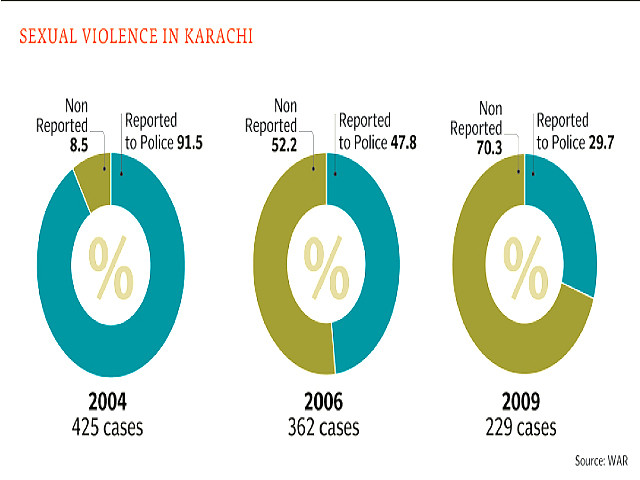
WAR, which works for the rights and rehabilitation of rape survivors in Karachi, revealed its figures on sexual violence in the city at a press conference at the Karachi Press Club on Wednesday.
According to WAR's database, 125 cases of sexual violence were investigated by the NGO from July 2009 to June 2010 and among them, 39 cases (31 per cent) were those of children below the age of 16, while the survivors in 65 cases (52 per cent) were under the age of 18.
The average age of survivors is 18 years while a three-year-old girl and a 65-year-old woman were also among the cases reported.
In most of the rape cases involving children, the aggressor is usually a close family member. "Unfortunately, our country's legal system still does not comprehend that a father or a brother can commit such a crime," said Sarah Zaman, the director of WAR.
"It is happening and increasing because there is no legislation for it," she said, adding that incest must be recognised in the country's legislation and should carry more severe punishment for people, who violate a child's trust and sexually abuse him or her.
The WAR director also called for amendments in laws to include culpability for object rape in which objects such as sticks are used. They should be considered rape cases instead of being tried under other offences such as bodily harm in the Pakistan Penal Code.
Success
During the press conference, the NGO also announced its success in the case of a six-year-old girl 'T', a resident of Baloch Colony, who was raped by her neighbour in January 2009. "The accused was convicted under Section 265 h-2(1) of the CrPC by the sessions court South, and awarded 10 years of rigorous imprisonment and a fine of Rs50,000," said Fareeda Moten, the trial lawyer for WAR.
T's mother, who was present at the press conference, described the ordeal as traumatic and unnerving. "The police officers were not registering our case and they threatened my husband so much that he had to go into hiding," she said, with tears rolling down her cheeks.
"Despite persistent efforts, the medico-legal officer was not examining T, nor was her FIR being registered until WAR intervened," said Zaman, adding that this is yet another example of how a common person is often denied justice in Pakistan, especially in rape cases.
"If such crimes continue, labourers will not be able to leave their homes to earn money if their children have to go through such an experience while they are away," said T's mother.
According to another observation by the NGO, the records of the first six months of 2010 also show an immense discrepancy between the numbers of FIRs registered and legal examinations conducted in hospitals. They show that in three major hospitals of Karachi - Jinnah Postgraduate Medical Centre, Civil Hospital Karachi and Abbasi Shaheed Hospital - 136 legal examinations were conducted, while only 37 (27 per cent) FIRs were registered.
Khalida Ahmed Qadri, the socio-legal officer of WAR, said that rape survivors face difficulties because of the discouraging attitude of police officers, lack of awareness, the complications of the legal system, social reaction upon exposure and corruption in the police department.
"Even I have to wait for hours in police stations and get to hear comments such as 'no respectful woman can sit in the police station during night hours'," she said.
Zaman said that the National Judicial Policy has helped a lot in speedy access to justice, but that additional laws need to be made and certain procedures of the criminal justice system should also be corrected.
Published in The Express Tribune, September 23rd, 2010.


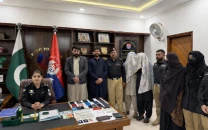
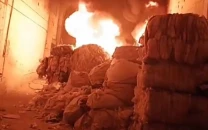

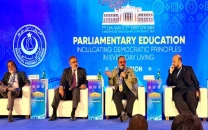
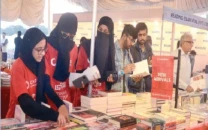












COMMENTS
Comments are moderated and generally will be posted if they are on-topic and not abusive.
For more information, please see our Comments FAQ